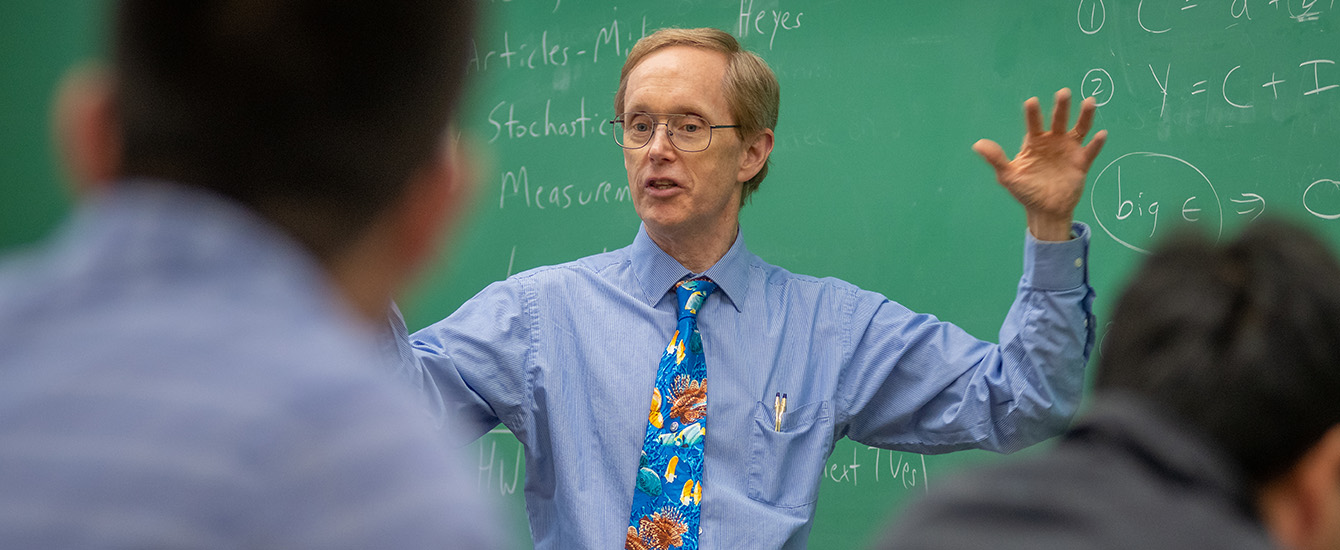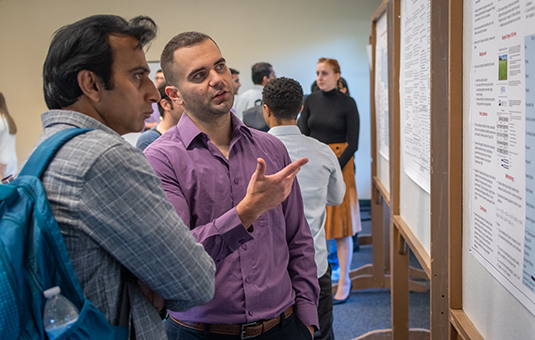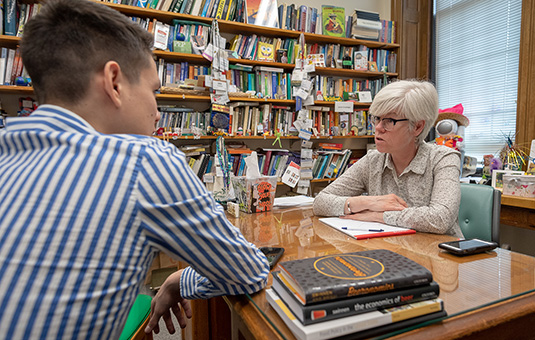Why apply to Clark’s doctoral program in economics?
Since the 1930s, Clark’s doctoral program in economics has prepared students to address some of the day’s most critical issues from the unique environment of a liberal arts and research university. Our intimate size fosters both a community of scholars and a robust department of supportive, field-leading faculty committed to academically innovative work in the areas of spatial analysis, development, and environment. Backed by the department’s resources as well as those of Clark’s George Perkins Marsh Institute, students use empirical and analytical skills to engage in research that not only advances knowledge in their fields, but also addresses policy issues in the areas of environmental economics, development, urban economics, and international economics.
Our Community
The program welcomes talented, dedicated students with a strong work ethic to contribute to our diverse community of scholars. The approximately 40 students in our economics doctoral program bring a wealth of experience and knowledge from across the world. In the past five years, our department also has hosted three Fulbright Scholars. As such, our program creates an intellectual environment at a small urban university where differences in disciplinary approaches enhance learning, and close faculty-student relationships — including the opportunity to participate in a teaching mentorship program — foster collegiality.




